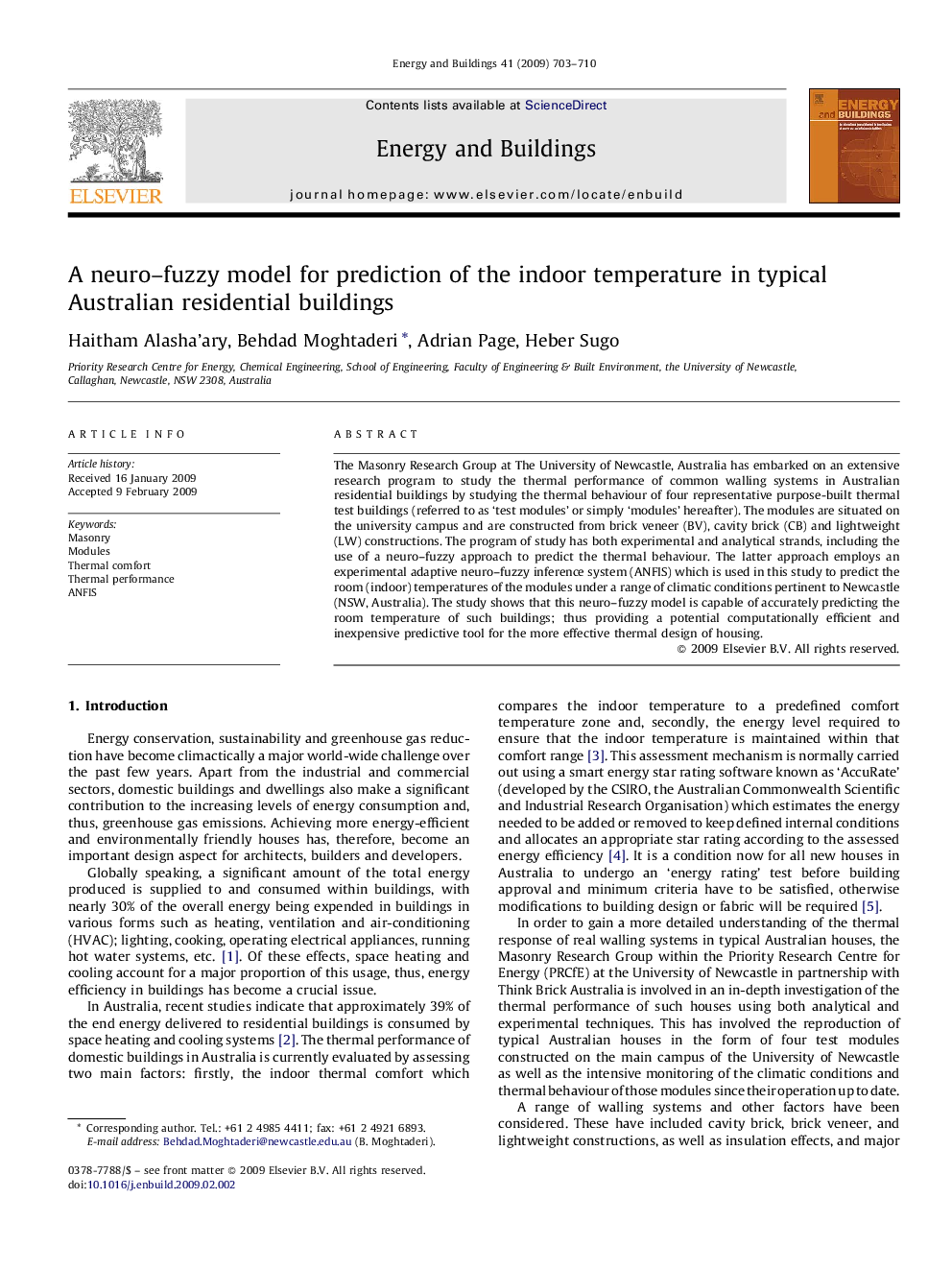| Article ID | Journal | Published Year | Pages | File Type |
|---|---|---|---|---|
| 264752 | Energy and Buildings | 2009 | 8 Pages |
The Masonry Research Group at The University of Newcastle, Australia has embarked on an extensive research program to study the thermal performance of common walling systems in Australian residential buildings by studying the thermal behaviour of four representative purpose-built thermal test buildings (referred to as ‘test modules’ or simply ‘modules’ hereafter). The modules are situated on the university campus and are constructed from brick veneer (BV), cavity brick (CB) and lightweight (LW) constructions. The program of study has both experimental and analytical strands, including the use of a neuro–fuzzy approach to predict the thermal behaviour. The latter approach employs an experimental adaptive neuro–fuzzy inference system (ANFIS) which is used in this study to predict the room (indoor) temperatures of the modules under a range of climatic conditions pertinent to Newcastle (NSW, Australia). The study shows that this neuro–fuzzy model is capable of accurately predicting the room temperature of such buildings; thus providing a potential computationally efficient and inexpensive predictive tool for the more effective thermal design of housing.
